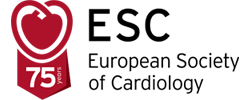Create your draft early
The abstract online submission services allow you to create a draft of your abstract and review it as many times as you wish before submitting.
Start your draft in advance and do not wait until the deadline to create your abstract submission form. Avoid the stress from “last minute” technical problems that may still occur or unexpected events.
NB: Abstracts that are in draft status after the submission deadline cannot be processed and therefore will not be considered for selection.
About content and format
An abstract is a succinct summary of the entire paper. The content should be clear and logical. Your abstract should answer the five questions: Who, What, Where, Why and How.
The different abstract sections
- Title: The title needs to be dynamic and conclusive (it sells your submission). Be specific and short. The title should be brief, interesting and describe the scope, content and focus of what you want to present.
- Background/Introduction: Briefly state what was done and concluded. Indicate why question-topic is important (knowledge gap).
- Purpose: Why was your project undertaken? You may include a short statement of your hypothesis.
- Methods: Succinct description of what was done and how, by whom, involving whom and where? What measurements were taken and how were the data managed?
- Results: What did you find/discover? Be succinct yet give reader summary analysis of each table or figure but do not repeat table data.
Present key results in a table or a figure that should be self-explanatory without referring to the text. - Conclusion(s): What can be concluded from the project? Keep your conclusions reasonable and ensure they can be confirmed by the findings of your study. What are the suggestions for future work?
A few tips
- The presenting author should be named first and should be able to defend the abstract in a lively discussion
- Promote the originality of your project
- The abstract is the first impression, so make it appealing
- Avoid illegible titles, substandard and unstructured abstract (no single number or data point given)
Style advice
Your abstract is more likely to be accepted if you follow these tips:
- Be concise; use short sentences
- Choose active verbs instead of passive when possible (the study tested rather than it was tested by the study)
- Keep language correct, simple and clear
- Use scientific, professional language making sure your information is easy to understand by a diverse audience
- Avoid abbreviations and jargon - remember abbreviations are not universal
- Do not use quotations and citations in the abstract content – Keep these for the presentation itself or use the dedicated field
- Ensure that there is a logical and coherent flow to the abstract
General advice
- Before you start, be clear what aspect of your work you want to present. What will the audience find most interesting?
- Have a look at abstracts from previous ESC congresses to get a feel for tone and style. You can access them through ESC 365 - the cardiology knowledge hub
- Ensure you follow all the practical guidance on the full Call for Abstracts
- Give yourself time to review what you have written
- Check for mistakes in grammar, punctuation, and spelling (English UK)
- Before submitting try and get an objective review of your abstract: perhaps a colleague who is unfamiliar with the work you are writing about
- Submit before the deadline
Ready to submit? Answer these questions
Carefully proofread your final copy before submitting and make sure you really are ready by answering the following questions:
- Are all of your co-authors on board?
- Did you carefully follow instructions to the submitter addressed in the abstract submission rules and guidelines?
- Will the title capture the interest of a potential congress delegate?
- Does the title describe the subject being written about?
- Is the abstract well written in terms of language, grammar and spelling?
- Does the abstract convey what the presentation is about?
- Does the abstract clearly state the subject of your project, and the question it aimed to answer?
- Does the abstract say how the project was carried out?
- Does the abstract indicate the value of the findings and to whom will they be of use?
- Does the abstract give a concise summary of the findings?
What you should absolutely avoid
- Unclear figures or tables
- Poorly described methods
- Results without numbers
- Spelling and grammar mistakes
- Overstatement in conclusions
- Disproportion of sections
- Hypothesis not stated (small head)

 Our mission: To reduce the burden of cardiovascular disease.
Our mission: To reduce the burden of cardiovascular disease.